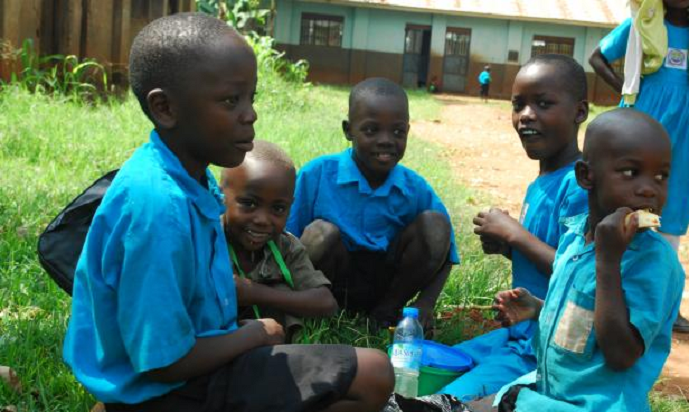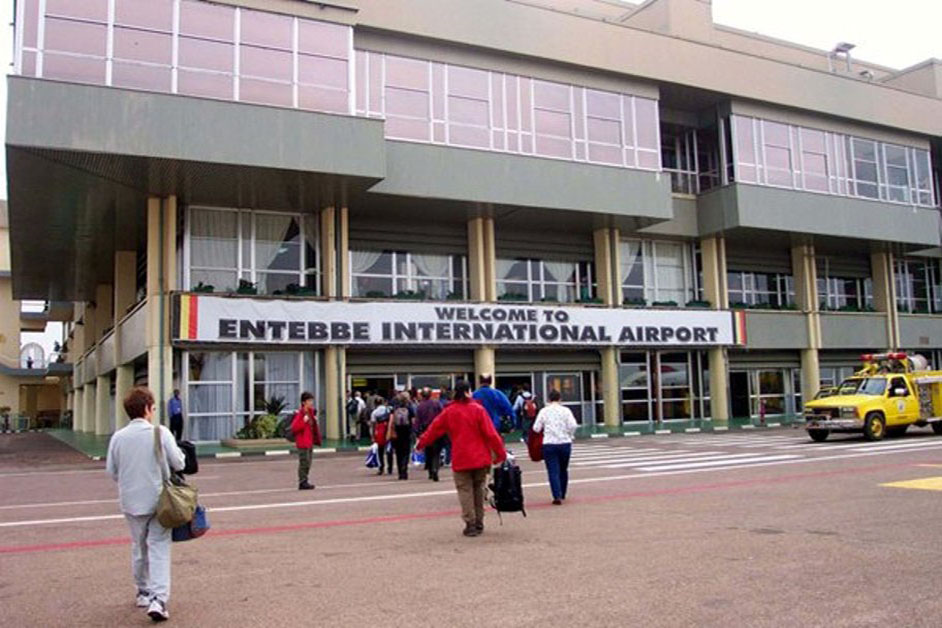School children sharing a meal from a fellow pupil whose parent had packed him lunch. Many parents in Mpigi are yet to embrace the Ministry’s call to feed learners at school.
A new report by ActionAid International Uganda has called on the government to adopt progressive tax reforms to increase funding for the education sector, warning that without urgent intervention, the country’s education system will continue to struggle with underfunding, poor infrastructure, and declining learning outcomes.
The report, titled Progressive Tax Reforms for Education Financing in Uganda, highlights chronic underinvestment in the sector, arguing that sustainable revenue generation is necessary to improve access to education and ensure quality learning.
“The current challenges in education financing, including low public expenditure on education as a percentage of GDP and the need for increased resources to address a growing population, infrastructure, and learning outcome challenges, demonstrate the need for appropriate progressive tax reforms to generate additional revenue to increase public resources for education,” the report states.
Uganda’s education sector is primarily funded by government allocations, supplemented by donor support. However, inconsistent budget allocations and unpredictable donor funding have left schools grappling with overcrowded classrooms, a shortage of teachers, and deteriorating infrastructure.
According to UNESCO, governments should allocate 4–6% of GDPor15–20% of total public expenditure to education. Uganda has consistently fallen short of these targets, with its tax-to-GDP ratio standing at just 12.7%, one of the lowest in the region.
A 2023 Oxfam report on Uganda’s tax system found that while the country has some progressive income tax policies, a significant portion of revenue is still derived from indirect taxes, which place a heavier financial burden on low-income earners.
The ActionAid report recommends shifting towards a more progressive tax system, ensuring that high-income earners and corporations contribute their fair share. It further suggests regular reviews of tax policies, stronger enforcement against tax evasion, and better compliance measures to boost revenue collection.
Samuel Ntale, a Project coordinator at ActionAid Uganda, said the report was developed as part of their project, Tax, Privatization, and the Right to Education: Influencing Education Financing Policy. The initiative advocates for increased government investment in public education through a fairer tax system.
Ntale argued that Uganda’s current tax structure is largely regressive, with lower-income earners carrying a disproportionate burden. He suggested that expanding the tax base to include the informal sectorwould create a larger revenue pool for government spending, ensuring sustainable education funding.
He noted that education is one of the biggest financial burdensfor Ugandan families, with many parentsforced to sell their property to afford school fees and related charges. As a result, they remain trapped in poverty, unable to break the cycle of financial hardship.
Ntale added that as the government implements progressive tax reforms, it should also establish a dedicated education fund to ensure that a portion of the collected tax revenue is specifically allocated to the education sector. He explained that such a fund would provide a consistent and reliable source of financing for schools, helping to address infrastructure challenges, improve teacher salaries, and enhance learning materials.
On paper, the Ministry of Education has outlined plans aimed at improving the quality, accessibility, and affordability of education, ultimately easing the financial burden on parents by relying on tax revenue to fund the system. However, these plans remain unfunded. A key example is the ambitious proposal for completely free primary and secondary education, for which the ministry has allocated UGX 1.4 trillion—yet not a single coin has been disbursed to implement it.
Uganda’s education sector is facing an increasing financial shortfall. According to projections, the funding gap for primary and secondary education is expected to rise from UGX 5.9 trillion in the 2023/24 financial year to UGX 61.3 trillion by 2029/30, a tenfold increase in just six years. If no action is taken, the widening gap will further impact teacher salaries, school infrastructure, and the availability of essential learning materials, making it even harder for Uganda to achieve universal access to quality education. Derrick Namisi, a Principal Economist at the Ministry of Education, admitted that the education sector is highly underfunded. He said that if Uganda is to meet its National Development Plan IV targets, there must be a concerted effort to increase funding for the sector.
-URN





